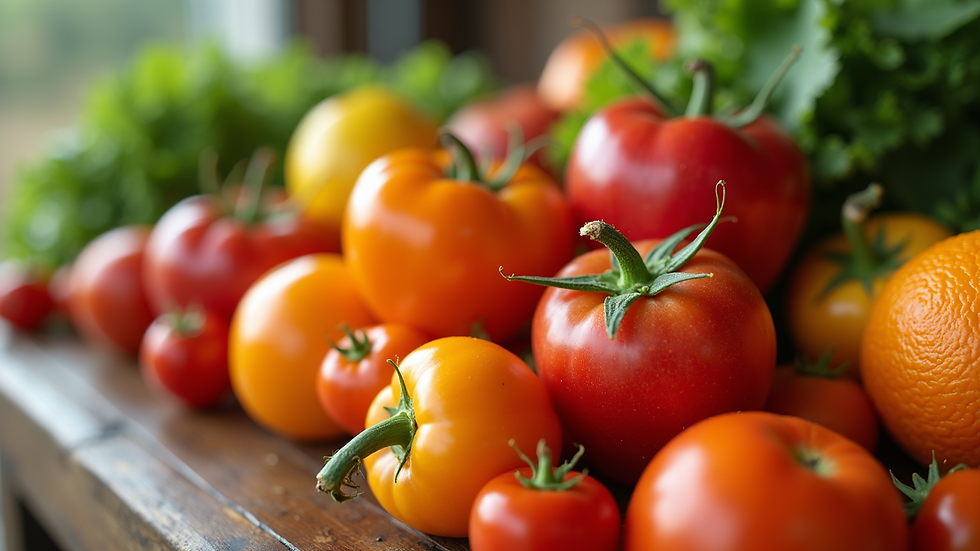Natural Collagen Boosters for Youthful Skin
- Anna Mender

- Aug 25, 2025
- 3 min read
Collagen is a vital protein that keeps our skin firm, smooth, and youthful. As we age, collagen production naturally declines, leading to wrinkles, sagging, and dullness. Fortunately, there are effective natural skin collagen methods that can help maintain and even boost collagen levels. These methods focus on lifestyle, diet, and skincare habits that support the skin’s structure and overall health.

Understanding Natural Skin Collagen Methods
Collagen is the most abundant protein in the body, making up about 30% of total protein content. It forms the scaffolding that supports skin, bones, muscles, and connective tissues. To keep skin looking youthful, it is essential to support collagen synthesis and prevent its breakdown.
Natural skin collagen methods include:
Eating collagen-boosting foods: Nutrients like vitamin C, zinc, and amino acids are crucial for collagen production.
Protecting skin from sun damage: UV rays accelerate collagen breakdown.
Using skincare products with collagen-supporting ingredients: Retinoids, peptides, and antioxidants help stimulate collagen.
Maintaining hydration and avoiding smoking: Both factors influence collagen health.
By integrating these methods into daily routines, skin can maintain elasticity and resilience longer.
Can you increase collagen naturally?
Yes, it is possible to increase collagen naturally through various lifestyle and dietary changes. The body produces collagen from amino acids, which come from protein-rich foods. However, collagen production slows with age, so supporting it with the right nutrients and habits is key.
Some effective natural ways to increase collagen include:
Consuming vitamin C-rich foods: Citrus fruits, strawberries, and bell peppers help synthesize collagen.
Eating bone broth: It contains collagen and amino acids like glycine and proline.
Including zinc and copper in your diet: These minerals are cofactors in collagen production.
Applying topical retinoids: They promote collagen synthesis in the skin.
Avoiding excessive sun exposure: UV rays degrade collagen fibers.
Staying hydrated: Water supports skin elasticity and collagen function.
These strategies work together to enhance the skin’s natural ability to produce collagen and repair damage.

Foods That Support Collagen Production
Nutrition plays a fundamental role in collagen health. Certain foods provide the building blocks and cofactors necessary for collagen synthesis. Incorporating these into your diet can have a visible impact on skin texture and firmness.
Vitamin C-rich fruits and vegetables: Oranges, kiwi, broccoli, and kale.
Protein sources: Chicken, fish, eggs, and legumes provide amino acids.
Bone broth: Contains collagen directly and supports joint and skin health.
Nuts and seeds: Almonds, pumpkin seeds, and walnuts provide zinc and copper.
Berries: Blueberries and raspberries are rich in antioxidants that protect collagen from damage.
Avoiding excessive sugar and processed foods is also important, as sugar can damage collagen through a process called glycation.
Lifestyle Habits to Preserve Collagen
Beyond diet, lifestyle choices significantly affect collagen levels. Here are some practical habits to adopt:
Sun protection: Use broad-spectrum sunscreen daily to prevent UV-induced collagen breakdown.
Quit smoking: Smoking reduces collagen production and damages existing collagen.
Get enough sleep: Skin repairs itself during deep sleep phases.
Exercise regularly: Physical activity improves circulation, delivering nutrients to skin cells.
Manage stress: Chronic stress increases cortisol, which can degrade collagen.
By combining these habits with a collagen-supportive diet, skin can maintain its youthful appearance longer.

Incorporating Natural Collagen Boosters Into Your Routine
For those looking to enhance their skin’s collagen naturally, integrating natural collagen boosters can be a game-changer. These boosters include supplements, topical treatments, and lifestyle adjustments designed to stimulate collagen production.
Some actionable recommendations:
Use skincare products with peptides and retinoids: These ingredients signal skin cells to produce more collagen.
Try collagen supplements: Hydrolyzed collagen peptides are easier to absorb.
Add antioxidant-rich foods and supplements: Vitamins E and C protect collagen from oxidative stress.
Stay consistent: Collagen production takes time, so regular use of these methods is essential.
Combining these with a healthy lifestyle maximizes the benefits and supports long-term skin health.
Embracing Youthful Skin Naturally
Maintaining youthful skin is achievable by focusing on natural skin collagen methods. By nourishing your body with the right foods, protecting your skin from damage, and adopting healthy habits, you can support your skin’s collagen and enjoy a radiant complexion.
Remember, collagen health is a journey that requires patience and consistency. Start with small changes today and watch your skin transform over time.
For more information on how to enhance your skin’s natural collagen, explore natural collagen boosters and rejuvenating procedures that complement your skincare routine.








Comments